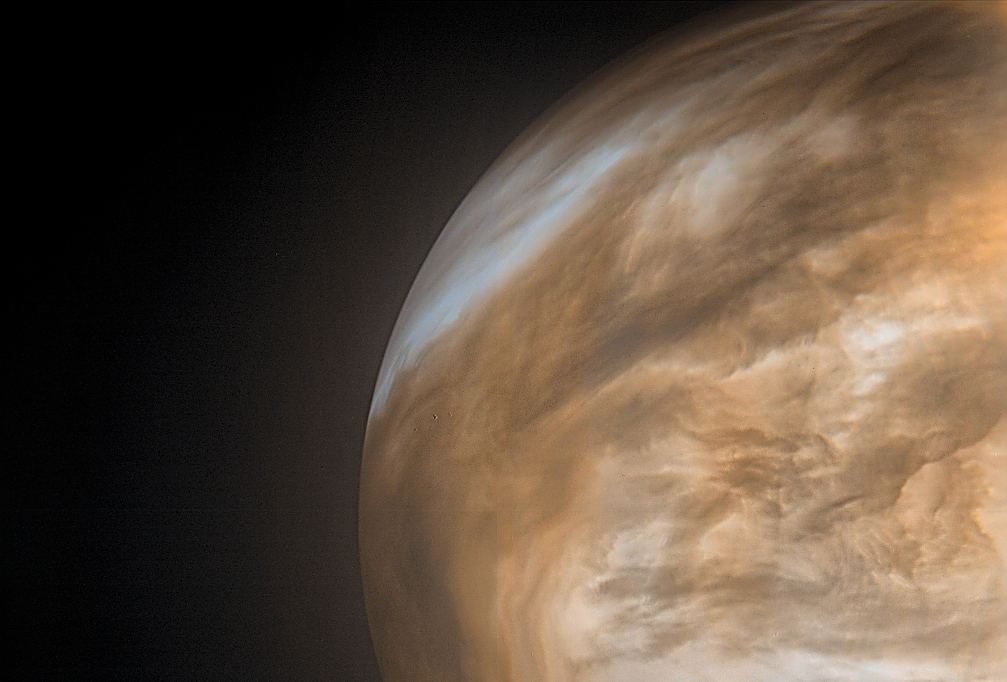
“When life began on Earth, the conditions on Venus were likely similar,” says Limaye. JAXA/ISAS/DARTS/Damia Bouic
Is there life on Venus? For more than a century, scientists have pondered this question. Now, there is renewed interest in Venus as a place that could support living organisms.
“We are trying to make the case for exploring Venus and to inspire future missions to collect data with satellites,” says Sanjay Limaye PhD’77, a scientist at the UW Space Science and Engineering Center who has been researching the planet for more than 45 years.
In a recent series of articles, Limaye explores the possibility that Venus supports microbial life, such as bacteria and other organisms.
The planet’s massive atmosphere of mostly carbon dioxide makes it a place of extremes, with scorching temperatures, intense winds, and volcanic activity. But its thick global cloud cover may present gentler conditions for some microbial life forms due to the availability of sunlight, nutrients, and some water.
“When life began on Earth, the conditions on Venus were likely similar,” says Limaye. “Some modeling suggests water could have existed for 1 billion to 3 billion years.”
The next decade will see seven missions to explore Venus and uncover its atmospheric and surface mysteries. Limaye is hopeful that the missions will answer questions about a planet long considered hostile to life.
Published in the Summer 2022 issue



Comments
No comments posted yet.